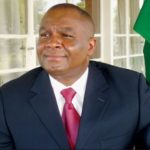A judge has upheld a UK arrest warrant for Julian Assange, saying the WikiLeaks founder should have the courage to face the consequences of breaking the law.
The decision on Tuesday means that the 46-year-old Australian could still be arrested if he left Ecuador’s embassy in London, where he took refuge in 2012 to avoid being extradited to Sweden for alleged sex crimes.
Sweden later shelved its investigation, but Assange faces arrest by British authorities for skipping bail in the Swedish case.
Assange fears British authorities will then allow his extradition to the United States where he is wanted for publication by WikiLeaks of classified information in 2010.
Judge Emma Arbuthnot said that by jumping bail Assange had made “a determined attempt to avoid the order of the court”.
She added: “He appears to consider himself above the normal rules of law and wants justice only if it goes in his favour.”
In a post later on Twitter, Assange said he and his team were “surprised” by the judge’s decision, saying the court had made “factual errors in its judgment”.
Al Jazeera’s Neave Barker, reporting from Britain’s capital, London, said the ruling, in essence, meant “very little changes” for Assange.
“We can probably assume there will be an attempt to appeal this latest verdict by the Westminster Magistrate Court,” Barker said.
Tuesday’s ruling was the second time in a week that a British judge had ruled against an appeal by Assange.
Last week, his defence team had argued there was no longer a need to have this warrant in place largely because Swedish authorities had scrapped their warrant for his arrest.
“Immediately after that decision, they filed another appeal saying that is wasn’t in the interest of justice to have this warrant remain in place, but the prosecution has always said he should not be rewarded for the Swedish investigation, and as a result this warrant should remain in place,” Barker said.
Assange and his defence team hoped the court would rule in their favour after a request under the Freedom of Information Act revealed that the British prosecutors had been in touch with the Swedish investigators.
“It appeared the prosecution here had tried to persuade the Swedish investigators not to scrap their investigation as far back as 2013, several years before they ended up doing so,” Barker said.
Assange became known when he founded whistleblower website WikiLeaks, which has, among other things, published documents about the killing of civilians and journalists by US soldiers in Iraq.
Before the 2016 US presidential elections, WikiLeaks also published a trove of private documents from the Democratic National Committee and John Podesta, campaign chairman for hopeful Hillary Clinton.
Source: Al jazeera



